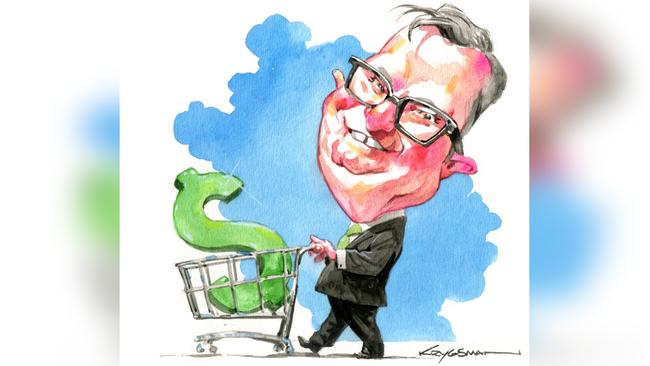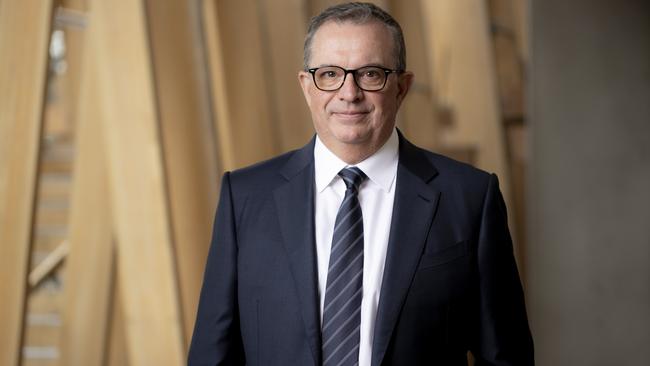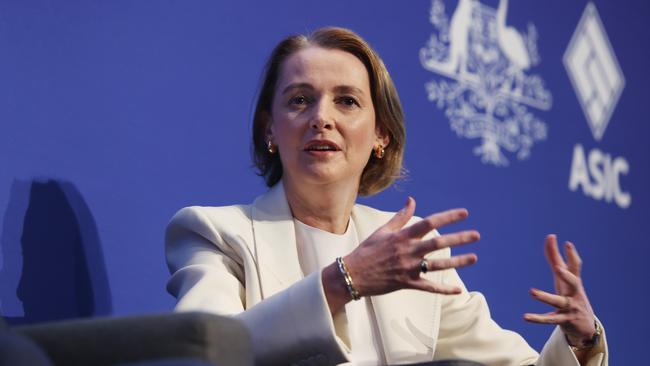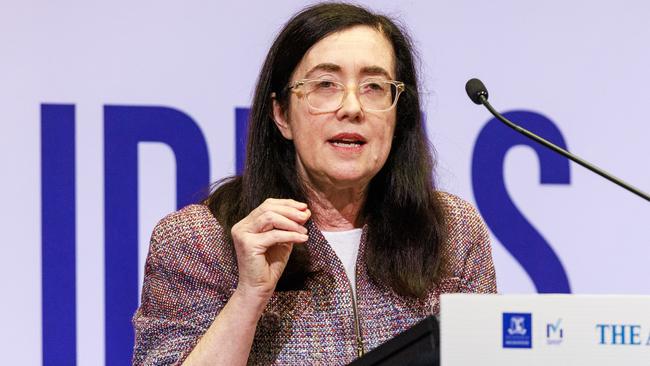
The $4.1 trillion sector is an obvious magnet for offshore private equity funds with the dollar around US61c, the pendulum swinging away from profit-for-members funds, politicians jumping on the bandwagon, and poor customer service raising the obvious question of just what is the superannuation industry doing.
Insignia comes with rare scale as the fourth-biggest asset manager, and a bidding war is on with CC Capital raising its bid to $4.60 a share on Friday, ahead of Bain’s $4.30 a share.
Next week Insignia will release its latest quarterly capital flows, which will show whether it has stemmed the outflows.
This weekend the Grattan Institute will release a paper noting the industry has been accumulating assets, but in retirement it is asking too much of its members and the rules are too complex.
Its radical solutions underline the failure of the big for-profit funds to understand that the whole idea about super is simply to provide for satisfactory retirement income for members.
As the Insignia bidding war steps up, the warning bells should be ringing loudly and clearly in industry fund land as the federal opposition is also talking up a major shakedown of the sector, which has only itself to blame.
For a long time, not-for-profit fund domination was based on investment return outperformance, but that is no longer the case.
When you are AustralianSuper and raking in $16bn in net inflows a year, or $325m a week, your members are entitled to ask what is in it for them, given the mandated income is taken from their wages before they see it.
Account-based pensions, the standard fare, put the risk on the member to work out whether they will have enough money should they live longer than the average four score years.
Tanarra Capital’s John Wylie was smart enough to read the tea leaves and see the unrecognised value last year in Insignia, which as the fourth-biggest asset manager has the scale and asset breadth to add to the pressure on not-for-profit funds.
His average entry price in the stock is around the $2.80-a-share mark, which means he is ahead with the stock at $4.16 and mooted bid around $4.30.

With gun financial service manager Scott Hartley now on the job, Insignia chair Alan Griffiths has the luxury of being able to reject the offers on the table on the grounds they undervalue the company. That is a huge call for a board that has presided over a stock that traded as high as $10.41 before Kenneth Hayne was let loose in the royal commission.
Hartley last year laid down a simplified structure and clear financial goals with four business lines – advice, wrap, master trust and asset management – to drive scalable and sustainable growth.
Importantly, this comes with a targeted $200m a year in net cost savings, which begs the question: what can private equity do that Hartley hasn’t already prescribed?
One answer is actually deliver and invest in the right digital tools to provide both cost savings and customer service.
No magic here, but with AMP now stabilised under Alexis George and KKR running Colonial for CBA, the for-profit funds are again shaping up as legitimate competitors for the industry funds for the first time in a decade.
Maybe customer service can be delivered before the politicians are let loose with their ideologically driven campaigns.
Brady’s smart AI move
Telstra’s Vicki Brady made exactly the right call in shouting from the rooftops about her outsourced AI strategy with Accenture.
The $700m seven-year joint venture deal essentially puts the telco at the front edge of AI developments and training to equip it to meet continued competition.

Last year the company wrote down the value of its government and enterprise division because the big platforms were stealing its business, as shown by a 5 per cent fall in revenues to $3.5bn, resulting in a 67 per cent fall in earnings before interest, tax, depreciation and amortisation of $136m.
The big platforms such as Amazon, Meta (WhatsApp) and Microsoft are taking the high margin traffic but the generative AI industry is also increasing traffic, which means Telstra et al can actually benefit from the revolution.
The Accenture news was pre-placed by Telstra with some scepticism about the real value of the deal at a time when disintermediation in the sector is rife.
This said, Brady is right to jump onto the AI wagon and to let everyone know where she is, including using so-called argentic AI, akin to a beehive with individual bees having distinct roles that combine to create the hive.
Accenture’s Julie Sweet has outlined how the technology allows one arm to collect data, another to self-correct material and all in a matter of seconds.
For Telstra it is crucial to not only be at the forefront of the industry but be seen to be so.
In particular it wants to ensure network performance to capitalise on new flows from generative AI.
Telstra will transfer 726 staff across to the joint venture, which inevitably will mean job cuts later as technology takes on more functions. At the end of seven years, all assets return to Telstra.
Impact Ag lands deal
Impact Ag’s Bert Glover, now backed by US-based Agriculture & Natural Solutions Acquisition Corporation (ANSC), has gained FIRB clearance to buy the late Colin Bell’s rural properties.
The $780m deal aims to develop the properties to capitalise on soil carbon and other projects.
ANSC is run by long-time Montana rancher and former Goldman Sachs executive David Leuschen with the aim of buying properties globally to maximise agriculture decarbonisation efforts to scale nature capital.
It was listed in 2023 to raise funds for the acquisitions.
Glover met Leuschen while working on Rupert Murdoch’s rural properties in the US, having previously worked with son-in-law Alasdair Macleod on his landmark Microsoft offsets deal.
ASIC’s new pick-up
ASIC deputy and former ACCC enforcement commissioner Sarah Court has pinched a valued executive from her old shop, with Scott Gregson to be the new CEO at ASIC.
He replaces Greg Yanco, who is retiring no doubt to concentrate on his surfing career full-time.

Gregson, due to start in March, leaves one bit of as yet unfinished business, with the report on the failed 2020 ANZ cartel case yet to be released.
The ACCC says the report is legally privileged and so will not be released, which doesn’t help anyone but maybe itself.
ACCC chair Gina Cass-Gottlieb was an adviser to immunity applicant JPMorgan.
The report was commissioned by Gregson on behalf of the ACCC with in-house lawyers not involved in the matter investigating.
Ironically, the ACCC has just refined its immunity policy to make clear that when an immunity executive is being interviewed by the ACCC this can be done in the presence of the executive’s lawyer but not the company lawyer. The ACCC has discretion on legal attendance.
Its an important line in the sand that from her days as a private practitioner Cass-Gottlieb well understands.
ASIC chair Joe Longo’s term at ASIC runs until mid-2026. Court is favourite to replace him as boss.




The battle for control of Insignia marks a turning point for retail superannuation providers, with smart money willing to invest billions of dollars for a company that not so long ago was regarded as a basket case in the wake of the 2017 royal commission.